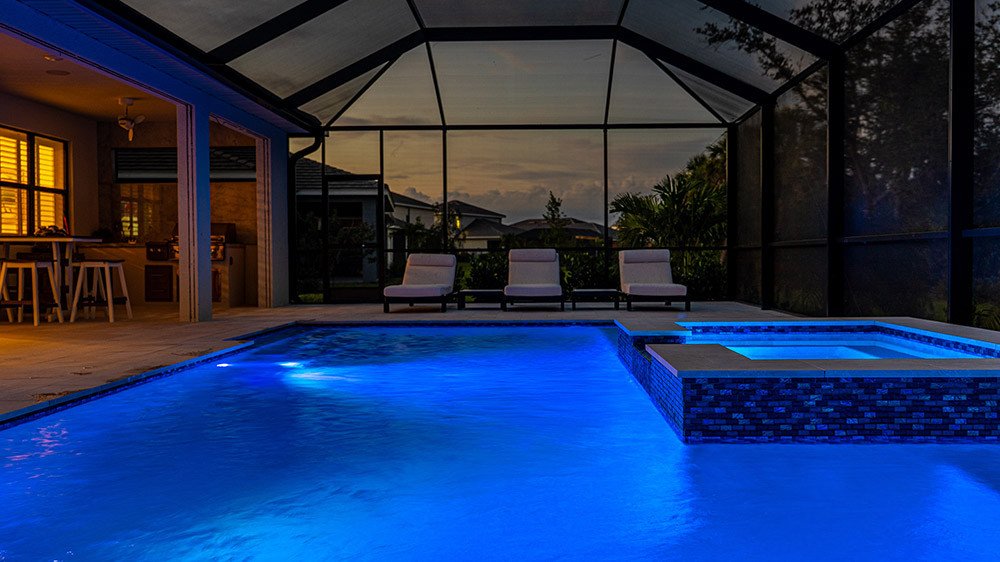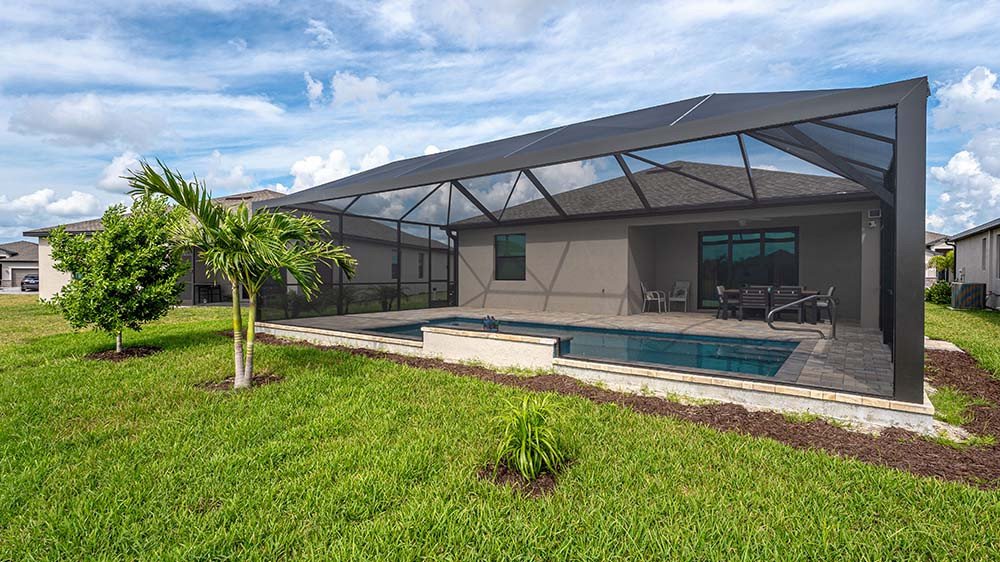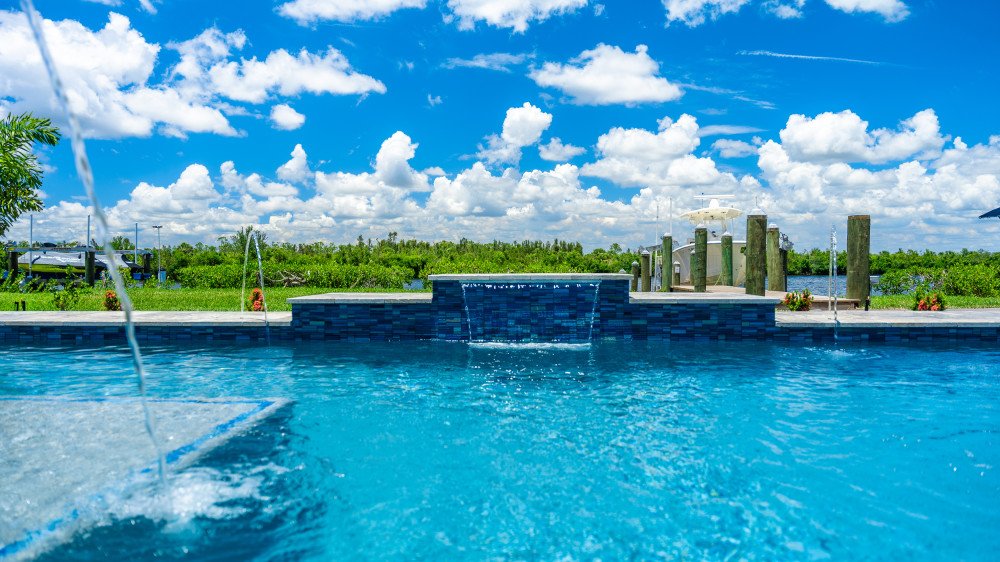.jpg)
A saltwater pool is a swimming pool that uses a saltwater chlorination system to generate chlorine, which keeps the water clean and sanitized. Instead of manually adding chlorine chemicals, the system uses a saltwater generator to convert salt (sodium chloride) into chlorine through a process called electrolysis. This creates a more consistent and automated chlorine level, reducing the need for frequent chemical adjustments while offering a gentler swimming experience. Despite the name, saltwater pools still contain chlorine, but the chlorine is produced naturally by the system, not added manually.
Cost savings
The upfront cost is higher with a saltwater pool (about $1,500 at the time of this article) but the overall cost to maintain the pool is lower. The main cost benefit of a saltwater pool is long-term savings. Salt is much less expensive than chlorine chemicals, and it typically only needs to be added every 1-3 months in SWFL. Additionally, because the system generates chlorine automatically, you won't need to purchase chlorine tablets or liquid regularly. This reduces ongoing chemical costs, making saltwater pools more cost-effective in the long run.
Health benefits
One of the greatest benefits of a salt system is its health benefits. Traditional chlorine pools can be harsh on your skin, hair, and overall health in general. Some of the chemicals used to keep pools sanitized are toxic and have been shown to be carcinogenic, specifically Cyanuric Acid also known as “stabilizer”.
Stabilizer protects chlorine from breaking down in sunlight. As you can imagine, your average chlorine pool in SWFL requires lots of stabilizer due to our hot sunny climate. A salt system constantly produces small amounts of chlorine which eliminates the need for high levels of stabilizer and in most cases, you won't need any. This also results in cost savings.
High amounts of chlorine have also been shown to have negative health benefits. The traditional method of pool service is to dump enough chlorine in the pool to last for a week until the next visit. As you can imagine, when this is done the chlorine PPM skyrockets way above the recommended dose. As mentioned above, the salt system eliminates this problem by constantly producing a slow feed of chlorine keeping the chlorine level at a safe low undetectable level.
Lower maintenance
Saltwater pools require less maintenance because the saltwater chlorination system automatically generates chlorine, reducing the need for regular manual additions of chlorine chemicals. This creates a more stable and consistent chlorine level in the water, so you don't need to frequently test and adjust chemical levels like you would with a traditional pool.
Additionally, the chlorine generation process helps to break down contaminants more efficiently, leading to fewer issues with algae and bacteria. The saltwater system also helps to maintain a more balanced pH, reducing the need for additional chemicals to correct imbalances. Overall, this streamlined process results in less time and effort spent maintaining the pool.
Consistent water chemistry
A saltwater system helps create more balanced water by maintaining more consistent chlorine levels and stabilizing the pool's PH. Here's how it works:
1. Consistent Chlorine Levels: The saltwater chlorinator generates chlorine automatically through electrolysis, which keeps chlorine levels steady. This reduces the fluctuations in chlorine concentrations that can occur with manual addition of chemicals in a traditional chlorine pool. Consistent chlorine levels help maintain effective sanitation and prevent issues like algae growth or water contamination.
2. Reduced pH Fluctuations: Chlorine produced by the saltwater system is typically less harsh than the chlorine added manually, which can cause pH swings. Saltwater pools tend to have more stable pH levels because the chlorine is produced gradually and at a steady rate. This stability helps reduce the need for additional pH-balancing chemicals, leading to better overall water balance.
3. Lower Chloramine Levels: Since saltwater pools produce fresh chlorine continuously, they tend to have fewer chloramines (the compounds that form when chlorine reacts with contaminants). This reduces the strong chlorine smell and irritation that can occur in traditional pools, and it helps maintain healthier, more balanced water quality.
By keeping the water chemistry more consistent and requiring fewer adjustments, saltwater systems make it easier to maintain balanced, clear, and healthy pool water. It's better for your pool too.
High chemical levels don't only have negative effects on our bodies, they also have negative effects on your pool and equipment. As stated above, a salt system allows you to keep chemical levels to a minimum. The same chemical that we mentioned above (cyanuric acid) is also responsible for surface staining and the premature breaking down of equipment and pool surfaces. This is denied by the industries manufacturers of course, but we've done independent testing proving that chlorine tablets, which contain cyanuric acid, cause orange / yellow stains and cause the plaster to break down quicker.
Conclusion
We here at Messina Pools strongly recommend a Saltwater Chlorination System. We haven't experienced any negatives, only positives. The health benefits, cost savings, lower maintenance, more consistent chemistry, and the fact that it results in a longer lasting pool surface makes the decision easy.





